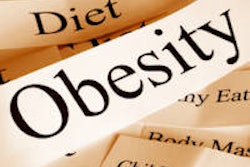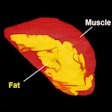
Many dentists are already taking blood pressure readings and providing tobacco cessation information. So can obesity interventions be far behind?
Dentists say they are interested in helping patients with serious weight issues, but at the same time they are afraid of offending them and appearing judgmental, according to a new study in the Journal of the American Dental Association (November 2010, Vol. 141:11, pp. 1307-1316). The study, conducted by researchers from the University of North Carolina (UNC), also found that a large number of dentists would be more willing to have such discussions if obesity were linked definitively to oral disease.
Some researchers have already started to propose obesity interventions for the dental office, and studies to support this are in progress, but lead author Alice Curran, DMD, an associate professor at the UNC at Chapel Hill School of Dentistry, feels they may have jumped the gun. She expressed concern that this research was conducted before anyone ever asked dentists if they are even interested.
"We thought it would be a good idea to find out if dentists are interested; if they are, who is the most interested; and what they would be willing to do," she told DrBicuspid.com. "Planning interventions should target interested individuals with proposals they can work with."
The study
Starting in September 2008, the authors mailed 8,000 surveys to a random sample of ADA members to assess their interest in, and barriers to, providing obesity counseling to patients. As of April 2009, 3,015 surveys had been returned (overall response rate of 37%). Of these, 2,965 were eligible for inclusion in the study (50 of the respondents were not currently practicing dentistry), the authors determined.
Here are some of the study findings:
— Alice Curran, DMD, University of
North Carolina
- Overall, 4.8% of respondents offered a form of counseling services while 50.5% reported that they were interested in offering obesity-related services.
- More than half of the respondents cited fears of offending patients (53.8%) and appearing judgmental (52%) as major barriers, followed by a paucity of trained personnel (46.3%) and patients' rejection of weight loss advice (45.7%).
- 82% of respondents agreed that dentists would be more willing to intervene if obesity were linked definitively to oral disease.
Dr. Curran told DrBicuspid.com she and her colleagues were surprised to find that a lot of dentists would be interested in helping their patients who may be obese or at risk for obesity.
"Almost 5% of the dentists who responded already perform some type of obesity intervention," she said. "This was very surprising that dentists have taken this upon themselves with no training or influence from outside their office."
Not all the responses were so positive, however.
"We also were surprised by some very strong negative opinions, some were downright hateful and nasty and used language too strong to publish in the paper," Dr. Curran said. "We even got nasty phone calls about wasting our time and such."
She added that some dentists seemed to have strong prejudices against obese people, but many were kind and understanding and eager to help.
Mary Tavares, DMD, MPH, a senior clinical investigator at the Forsyth Institute who has done similar research (JADA, March 2009, Vol. 140:3, pp. 313-316) said that these findings are unique since no one has done a survey like this before -- a few smaller ones, but none well-published and none national in scope.
"I have been working on an intervention/prevention modality that dentists can use," she added. "Information like this helps to inform me on how to disseminate it and what I may encounter from my fellow dentists."
Why dentists?
Dentists tend to see patients more frequently than medical doctors, and they can observe changes over time and be alert for changes that put patients at risk for obesity, Dr. Curran explained. Because a major role of the dentist is to motivate patients to keep their mouths healthy, dentists also have training in nutrition and behavior modification, she added.
William F. Vann Jr., DMD, MS, PhD, a research professor at the UNC dental school who has done similar research (Pediatric Dentistry, July/August 2005, Vol. 27:4, pp. 271-276), feels that the benefits of providing this service are in many ways altruistic.
"Taking pediatric dentists as an example, there is a focus on the entire child and not just the oral cavity," he said. And although the data linking obesity to dental cries in kids are inconsistent, pediatric dentists know about diet and nutrition, and it's easy to talk about the former without talking about obesity.
"I know obtaining blood pressure and providing counseling for tobacco cessation have become integral to most practices," Dr. Vann said. "Obesity counseling is a next logical step."
Dr. Tavares agrees that one of the benefits of incorporating obesity intervention is that patients appreciate that the dental team is concerned about their health, beyond that of the mouth. In addition, dental hygienists and assistants like their enhanced roles and feel greater job satisfaction, she added.
"Obesity and the behaviors that promote obesity are integrally linked to oral health," she said. "Better food choices can result in less tooth decay, and decreased obesity equals decreased diabetes equals decreased periodontal disease and gingivitis."
Need for education and training
However, many dentists appear to be reluctant to involve themselves in systemic health, Dr. Tavares said.
"Even though all are taught to take blood pressure, very few actually do it in practice," she added. "Fear of alienating or offending patients and lack of confidence or resources to address medical issues have been reported as reasons that dentists do not do other health screenings or counseling, such as hypertension, smoking, and nutrition."
Dr. Curran said that she and her colleagues had an idea that dentists might be afraid to mention weight to their patients for fear they would be offended and leave the practice, but they did not realize how prevalent this fear is.
"This indicates that training in addressing sensitive health issues is needed for dentists," she said. "They can tell their patients their teeth need whitening but are afraid to address a significant health concern."
Copyright © 2010 DrBicuspid.com



















